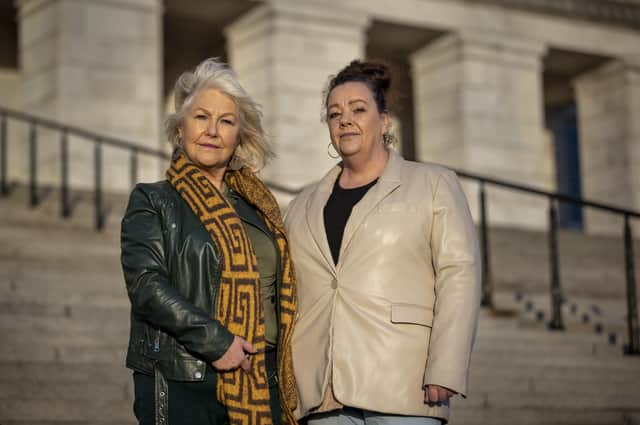Abuse survivors will get their apology as planned


Campaigners on behalf of victims and survivors have welcomed the development, which was agreed following a virtual meeting of the parties yesterday.
The apology will involve a minister from each of the parties which previously made up the Executive and will be discussed with victims and their representatives before it is approved.
Advertisement
Hide AdAdvertisement
Hide AdFormer first minister Paul Givan and then deputy first minister Michelle O’Neill announced last month the apology would be given in Parliament Buildings in Stormont on behalf of the power-sharing Executive on March 11.
However, since then the DUP has resigned the first minister role, in protest at the workings of the post-Brexit Northern Ireland Protocol, leading to doubt over whether the apology would go ahead.
However, victims have now been informed that the apology will proceed on the date set.
Margaret McGuckin, of the victims group Savia, said it was a good day.
Advertisement
Hide AdAdvertisement
Hide AdShe added: “We have been informed that the apology is going ahead on March 11. We are delighted that has finally come around because of our lobbying and campaigning.
“It is unfortunate that we have had to once again lobby and campaign to get something that was rightly ours.
“It’s something we are looking forward to. To end this whole campaign – to hear the words ‘I am sorry’.”
The public apology was recommended in the final report of the Historical Institutional Abuse Inquiry (HIAI) which was published five years ago.
Advertisement
Hide AdAdvertisement
Hide AdThe inquiry looked into allegations of abuse at children’s homes and other residential institutions run by churches, charities and the state and found abuse and mistreatment of the young people living there between 1922 and 1995 was “widespread”.
Another recommendation made by the chair of the inquiry, the late Sir Anthony Hart, was implemented through legislation at Westminster – a compensation scheme for victims and survivors.
Speaking at Stormont yesterday, Ms O’Neill said: “My number one priority in this matter is the needs of victims. They deserve an apology from the highest level of government. They have been failed at every turn, so my mind turns very quickly to the need to deliver that apology.”
She added: “I had asked for the party leaders to come together to discuss this issue, I am glad that there is consensus that we need to deliver the apology as was promised on March 11.
Advertisement
Hide AdAdvertisement
Hide Ad“We will work together in the time ahead to ensure that apology is delivered but the first port of call has to be the victims themselves.
“We are going to ensure officials engage with them over the coming days to ensure that the apology is delivered as promised on March 11, albeit in a different format.”
DUP leader Sir Jeffrey Donaldson said: “I made clear when the first minister (Paul Givan) resigned we would work with other parties to ensure the apology to the victims and survivors of historical institutional abuse went ahead.
“I am glad we have made further progress in agreeing the arrangements for that to take place. While further work is still required, I believe that there is a consensus that we should proceed with the apology, and I believe that is the right thing to do.”